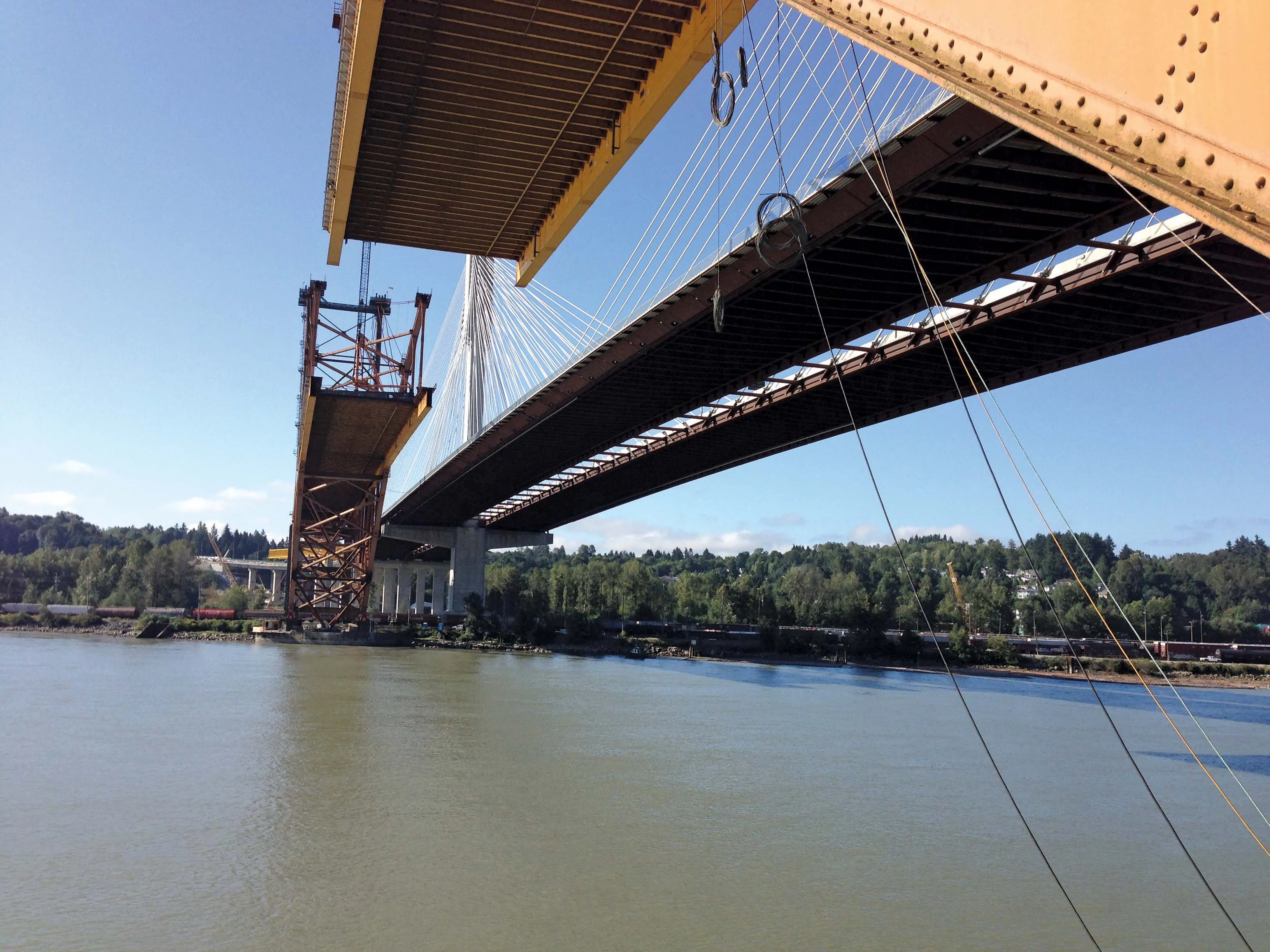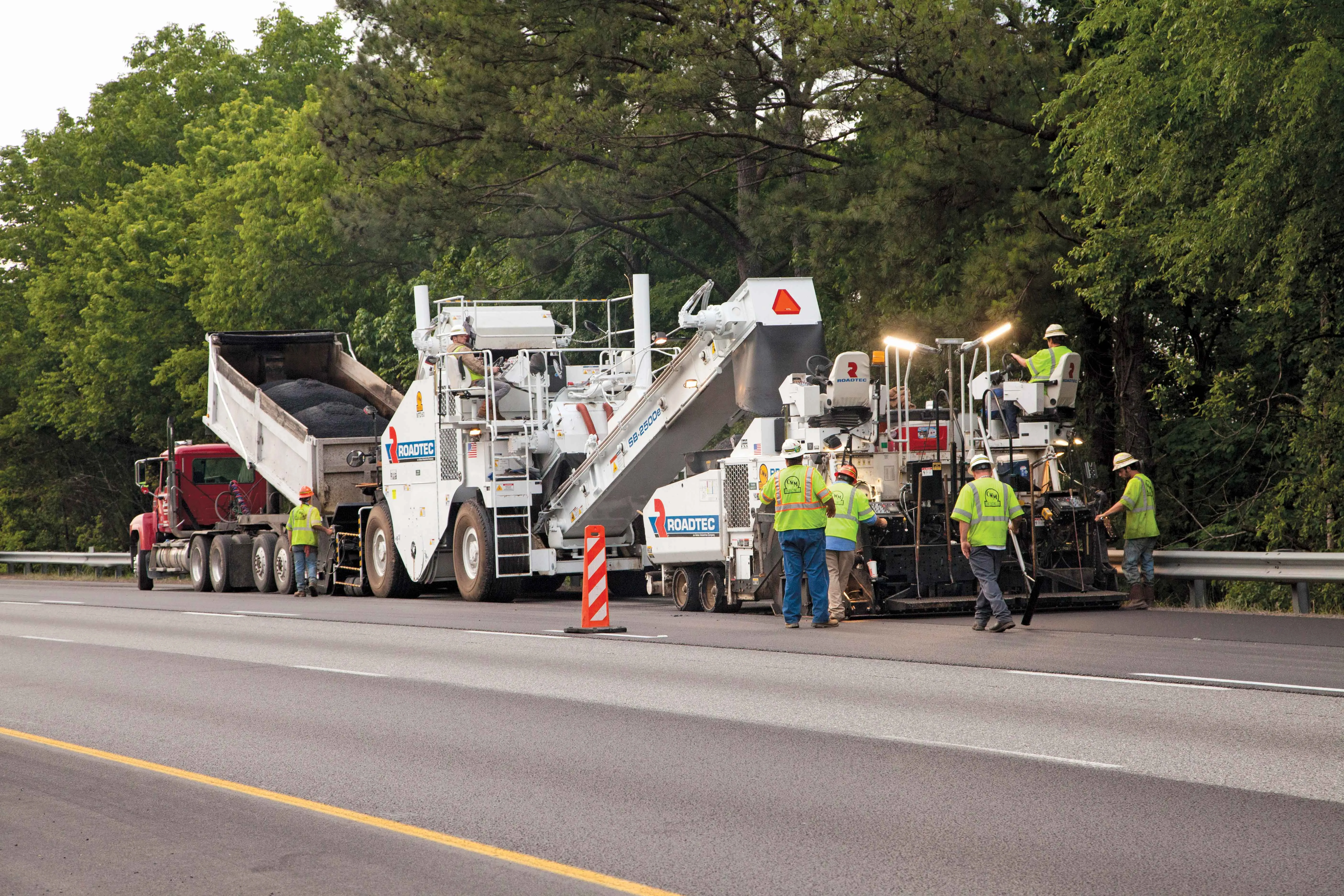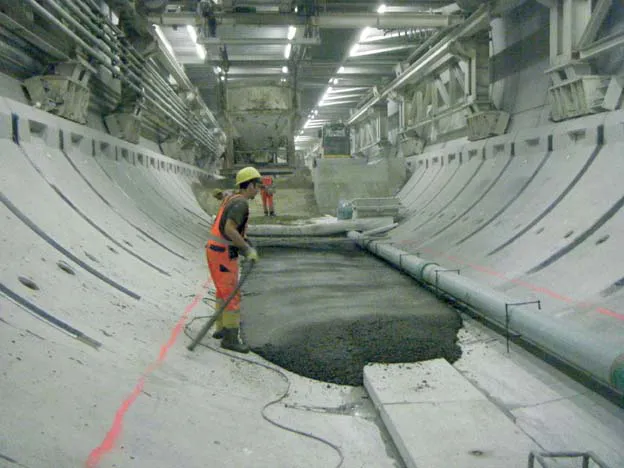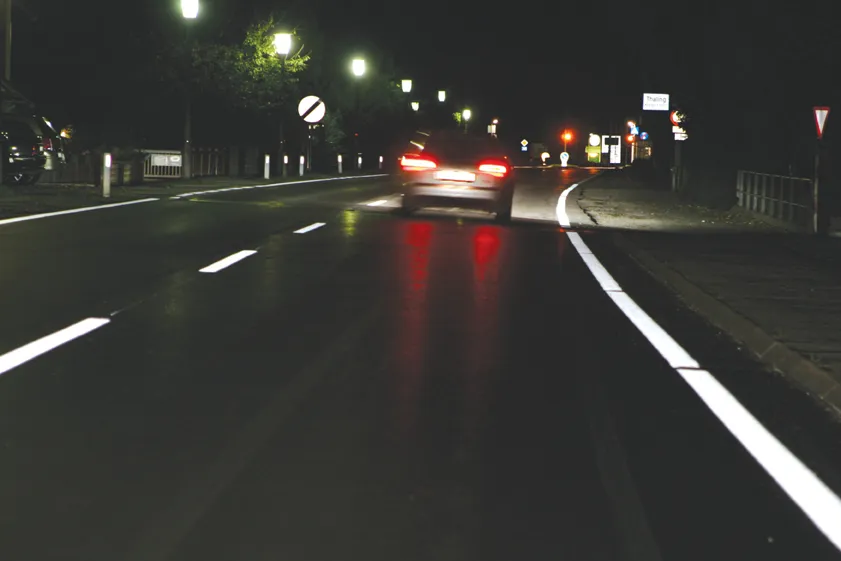A new automatic cone laying and removal system, designed to provide total safety for highways operatives, has successfully undergone testing in Switzerland. The advanced Mobile Automatic Roadblock System (MARS), developed by Dutch designers and manufacturers, Traf-IQ, has been operated during highways maintenance work on Amsterdam's A9 and A10 motorways. MARS automatically places a rumble strip, a light arrow and an attenuator as well as the miles of cones, and then automatically, safely and efficiently rem
February 10, 2012
Read time: 2 mins
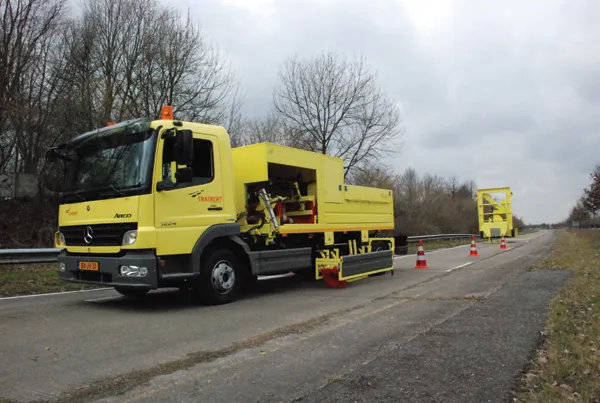
A new automatic cone laying and removal system, designed to provide total safety for highways operatives, has successfully undergone testing in Switzerland.
The advanced Mobile Automatic Roadblock System (MARS), developed by Dutch designers and manufacturers,2564 Traf-IQ, has been operated during highways maintenance work on Amsterdam's A9 and A10 motorways.
MARS automatically places a rumble strip, a light arrow and an attenuator as well as the miles of cones, and then automatically, safely and efficiently removes them.
According to Peter van Nes of Traf-IQ, the Swiss Bauamt für Straßen (Building Authority for Roads) and various Kantons are, for safety reasons, willing to forbid the manual neutralisation of traffic lanes, especially since the MARS proved able to do the job automatically, safely and reliably.
"The Zürich Kanton has profoundly tested the system on its network around Zürich, on highways and in tunnels, always with good results. We are actually in the process of building a smaller version of MARS to fit their slightly smaller lanes" he said.
"National Swiss television followed all of it while making the documentary, which was aired as part of a programme called Einstein. Soon the MARS will become part of the Swiss scenery." In contrast to the smaller model, Traf-IQ is to build a bigger version of MARS, which contains approximately 500 cones, allowing fast lane closures in lengthy tunnels, while also developing a demountable automatic rumble mat-laying device so that users do not have to get out in live traffic to lay down rumble strips.
The advanced Mobile Automatic Roadblock System (MARS), developed by Dutch designers and manufacturers,
MARS automatically places a rumble strip, a light arrow and an attenuator as well as the miles of cones, and then automatically, safely and efficiently removes them.
According to Peter van Nes of Traf-IQ, the Swiss Bauamt für Straßen (Building Authority for Roads) and various Kantons are, for safety reasons, willing to forbid the manual neutralisation of traffic lanes, especially since the MARS proved able to do the job automatically, safely and reliably.
"The Zürich Kanton has profoundly tested the system on its network around Zürich, on highways and in tunnels, always with good results. We are actually in the process of building a smaller version of MARS to fit their slightly smaller lanes" he said.
"National Swiss television followed all of it while making the documentary, which was aired as part of a programme called Einstein. Soon the MARS will become part of the Swiss scenery." In contrast to the smaller model, Traf-IQ is to build a bigger version of MARS, which contains approximately 500 cones, allowing fast lane closures in lengthy tunnels, while also developing a demountable automatic rumble mat-laying device so that users do not have to get out in live traffic to lay down rumble strips.


